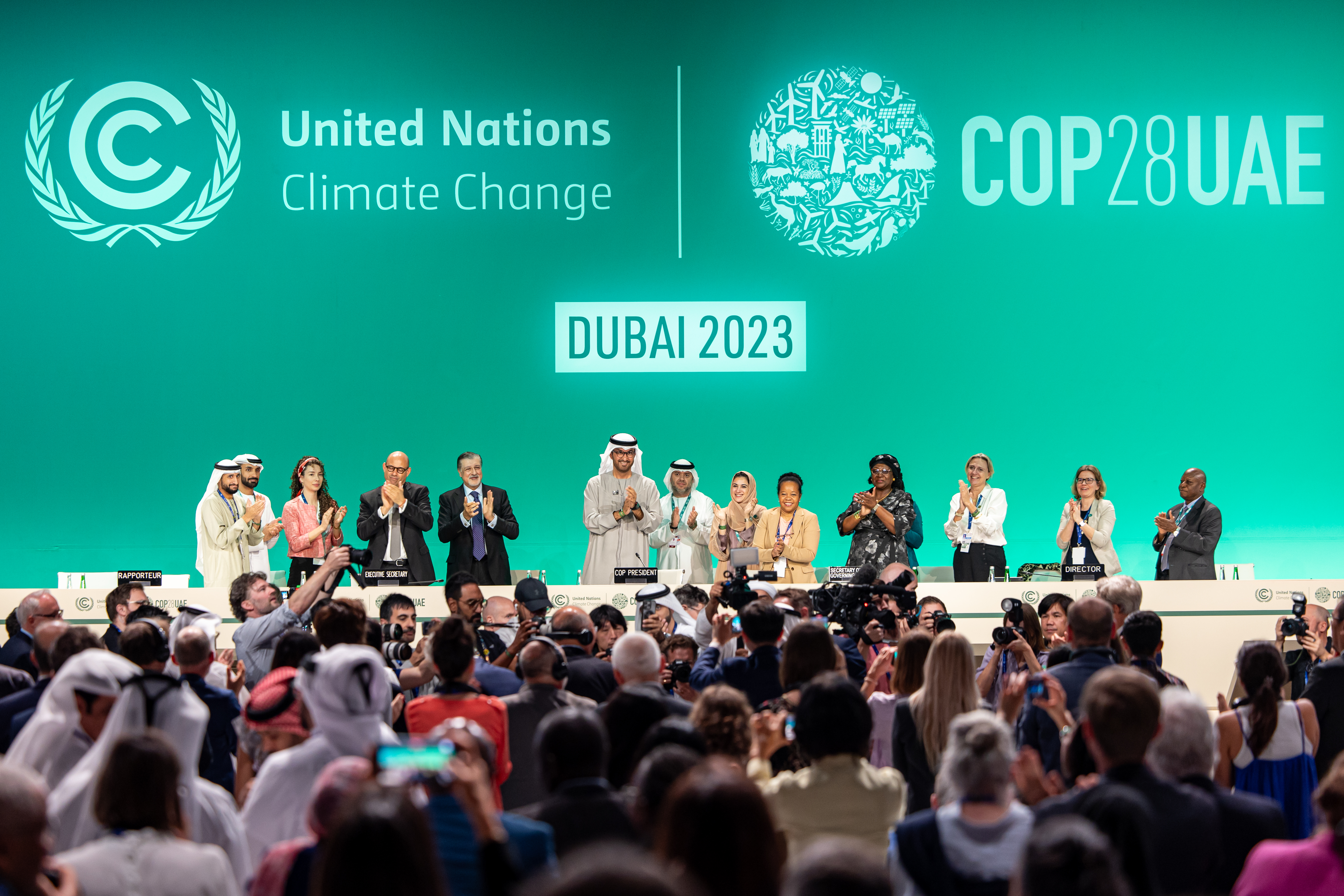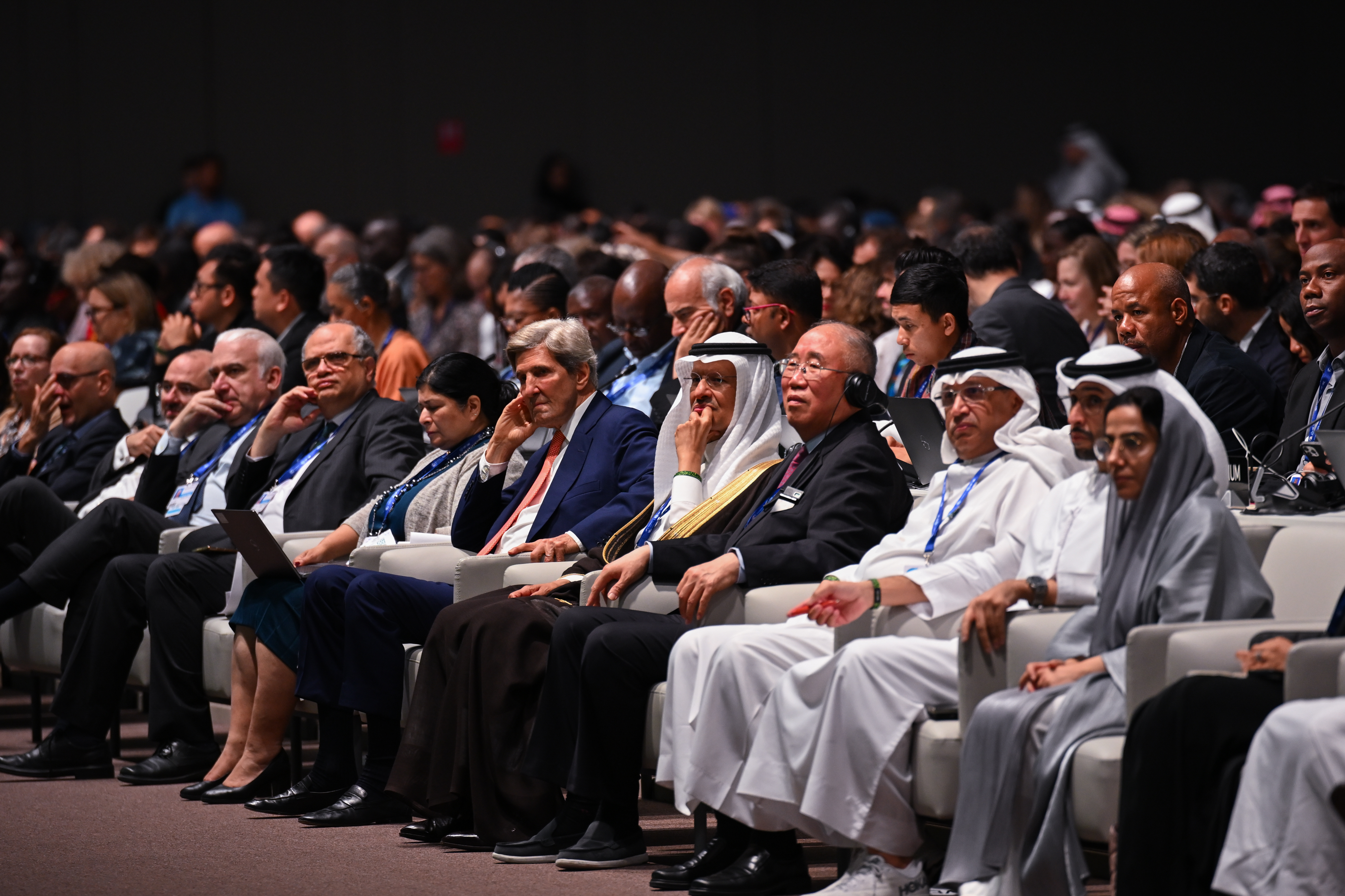COP28 approves historic ‘UAE Consensus’ on climate change
Nearly 200 countries on Wednesday approved a historic “UAE Consensus” on climate change at COP28 in Dubai – the first ever Global Stocktake on the Paris climate goals, that for the first time urges nations to transition away from fossil fuels and speed up the phase-down of unabated coal to avert the worst effects of climate change.
Standing ovation and thunderous applause by thousands of delegates rang out at the cavernous COP28 plenary hall at Dubai Expo City as COP28 President Dr Sultan Ahmed Al Jaber struck down the gavel, formally adopting the landmark agreement on Wednesday morning.
“Many said this could not be done… But when I spoke to you at the very start of this COP, I promised a different sort of COP. A COP that brought everyone together, private and public sectors, civil society, NGOs and faith leaders and indigenous peoples. Everyone came together from day one, everyone united, everyone acted – and everyone delivered,” Dr Sultan said.
“It is a plan that is led by the science,’’ Dr A Jaber said. “It is an enhanced, balanced, but make no mistake, a historic package to accelerate climate action. It is the UAE Consensus... We have language on fossil fuel in our final agreement for the first time ever,” he added.

United Nations Climate Secretary Simon Stiell welcomed the agreement and thanked the UAE for hosting the summit as well as the Presidency for navigating the intense and difficult negotiations to reach a consensus. “We must get on with the job of putting the Paris agreement into full work,” he said.
Details of the COP28 agreement
The adopted agreement is the third version to be published by the COP28 Presidency in the past 48 hours and followed intense negotiations over the wording that lasted until 3.00 am on Wednesday. The language of the final text is the strongest yet on curbing emissions and also calls for “accelerating action” during “this critical decade” – reflecting an urgency that several countries have said is critical to ensure global warming can be limited to 1.5C in line with the Paris Agreement.
The 21-page agreement includes an updated section that calls for "reducing both consumption and production of fossil fuels, in a just, orderly and equitable manner so as to achieve net zero by, before, or around 2050 in keeping with the science". It also retains a previous section that urges “phasing out inefficient fossil fuel subsidies that do not address energy poverty or just transitions, as soon as possible”.
Other major commitments contained in the final negotiated text include:
- A significant step to boost expectations for the next round of Nationally Determined Contributions (NDCs) by encouraging "economy-wide emission reduction targets."
- Building momentum behind the financial architecture reform agenda, recognising the role of credit rating agencies for the first time, and calling for a scale up of concessional and grant finance.
- A new, specific target to triple renewables and double energy efficiency by 2030.
- Recognising the need to significantly scale up adaptation finance beyond the doubling to meet urgent and evolving needs.
US Special Envoy John Kerry celebrated the agreement, saying: “I am in awe of the spirit of cooperation that has brought everybody together. This document sends very strong messages to the world.” UN Secretary-General Antonio Guterres welcomed the agreement and said in a statement that “for the first time, the outcome recognises the need to transition away from fossil fuels.”
The consensus vote on the agreement included 197 countries and the European Union.
Implications of the new COP28 draft
The historic COP28 agreement includes the previously wording on the tripling of renewable energy capacity globally by 2030, speeding up efforts to reduce coal, and accelerating technologies such as carbon capture and storage that can clean up hard-to-abate industries.

The agreement also calls for "accelerating zero and low emissions technologies, including, inter alia, renewables, nuclear, abatement and removal technologies, including such as carbon capture and utilisation and storage, and low carbon hydrogen production, so as to enhance efforts towards substitution of unabated fossil fuels in energy systems".
The agreement marks the first time in 30 years of UN climate summits that nations have agreed on a strategic move away from oil, gas and coal – which together account for nearly 80% of global energy.
KEEPING THE ENERGY INDUSTRY CONNECTED
Subscribe to our newsletter and get the best of Energy Connects directly to your inbox each week.
By subscribing, you agree to the processing of your personal data by dmg events as described in the Privacy Policy.
















